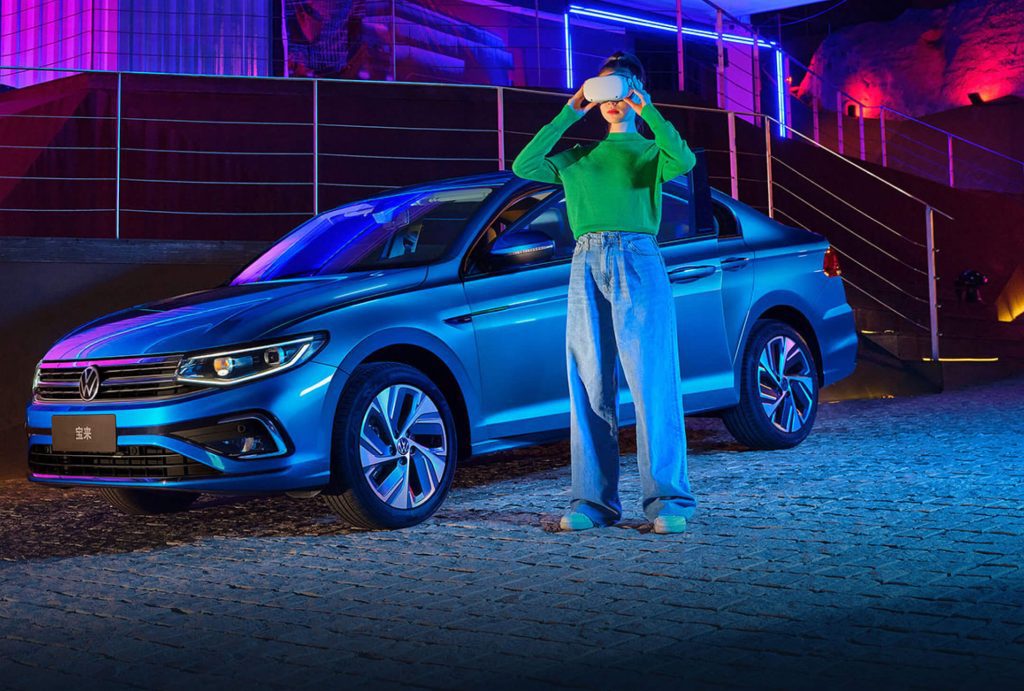Which is Better: 2025 Volkswagen Bora or Golf? How to Choose Between Them?
Platform & Suspension Technology

Golf:
Built on Volkswagen’s more advanced MQB platform, it features a multi-link independent rear suspension tuned for a balance of handling and comfort. The chassis offers solid road feel, excellent support during high-speed cornering, and greater compliance on bumpy roads.
Bora:
Based on the older PQ34 platform, it uses a simpler, lower-cost torsion beam non-independent rear suspension. While adequate for smooth urban roads, it offers less refined vibration absorption and handling finesse compared to the Golf, especially on complex road surfaces. If driving dynamics or rough roads are priorities, the Golf’s chassis is superior.

Space & Practicality

Golf (Hatchback):
Dimensions: 4282×1788×1479mm, wheelbase 2631mm – typical European compact hatchback. Boot capacity is 368L, with split-folding rear seats for flexibility, though cargo depth is limited.

Bora (Sedan):
Significant size advantage (4672×1815×1478mm, wheelbase 2688mm) translates to more generous rear legroom. Boot capacity reaches 506L, ideal for family trips or large luggage. If frequent passenger hauling or large item transport is needed, the Bora excels. For daily commuting, the Golf’s urban agility is a plus.
Power & Fuel Efficiency
Golf 2025 300TSI: 1.5L TSI turbo engine, max power 160 HP, 0-100km/h in 8.5 seconds, MIIT fuel consumption: 5.56L/100km.
Bora 2025 200TSI: 1.2L TSI turbo engine, max power 116 HP, 0-100km/h in 11 seconds, MIIT fuel consumption: 5.75L/100km.
The Golf offers significantly stronger power reserves, particularly for confident highway overtaking. The Bora, while slightly less efficient, provides sufficient power for city driving and suits budget-conscious buyers.

Features & Technology
Golf:
Standard 10.25-inch digital cockpit + large infotainment screen. Offers optional L2 ADAS (including Full-Speed ACC, Lane Keeping). Higher-quality interior materials (soft-touch plastics + leather combinations), with available options like ventilated/heated seats and heated steering wheel. Close to a “digital-smart” cabin aesthetic.
Bora:
Practical base features (e.g., 8-inch instrument cluster, rearview camera, cruise control), but lacks advanced tech. Interior predominantly uses hard plastics, with faux-leather seats only on mid/high trims. Leans towards functional pragmatism.

Price & Positioning
Golf: Positioned as a premium hatchback, starting around ¥150,000+ (approx. $20,700+), targeting buyers seeking driving quality and design.
Bora: Focuses on value, starting about ¥20,000+ lower ($2,800+) for comparable specs, making it a top choice for budget-limited families.
Buying Recommendation
Choose the Golf if: You prioritize driving enjoyment, value advanced tech features, frequently travel solo/with one passenger, or appreciate the hatchback’s design and agility.
Choose the Bora if: You need maximum rear space and cargo capacity, have a tighter budget, or primarily use the car for city commuting/family duties.
Strongly recommend a test drive if budget allows. The Golf’s driving refinement and the Bora’s spacious utility become immediately apparent behind the wheel. Neither car is objectively superior; the best choice depends on which aligns with your real-world needs.


